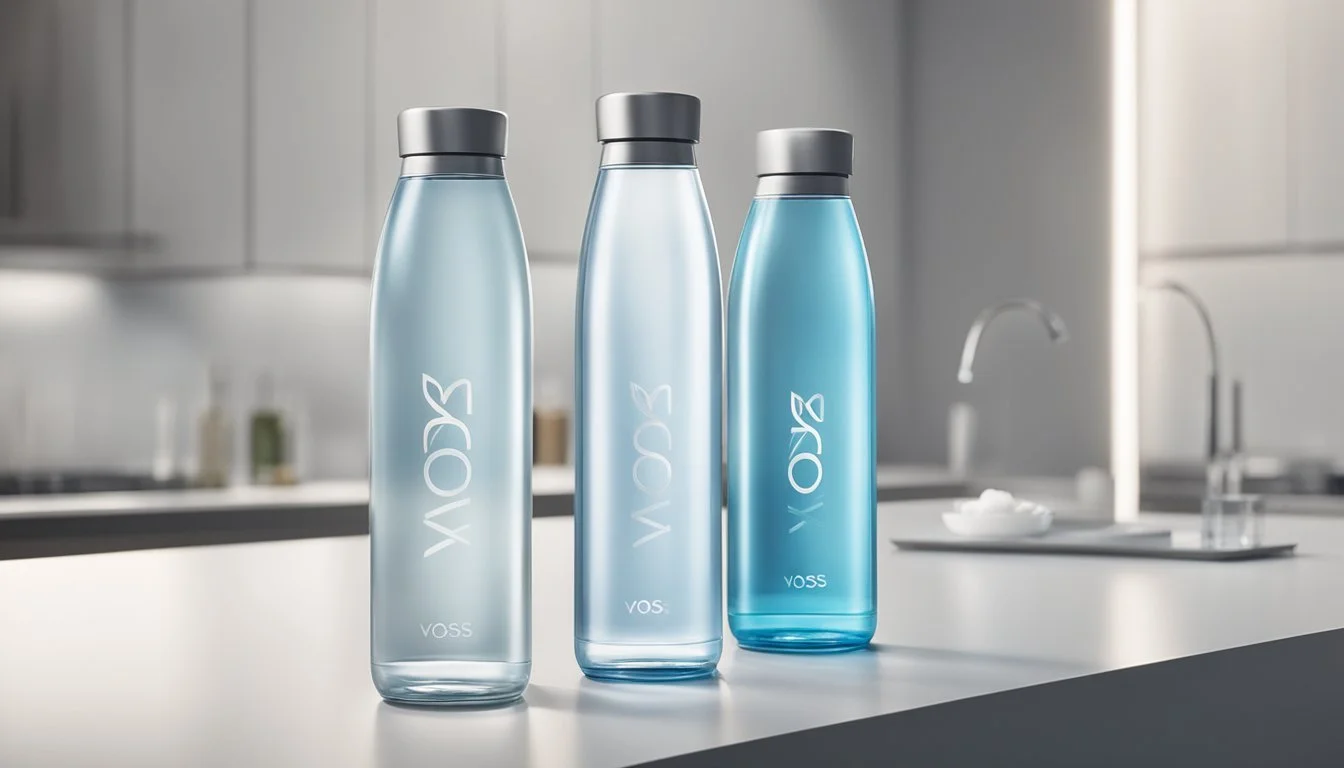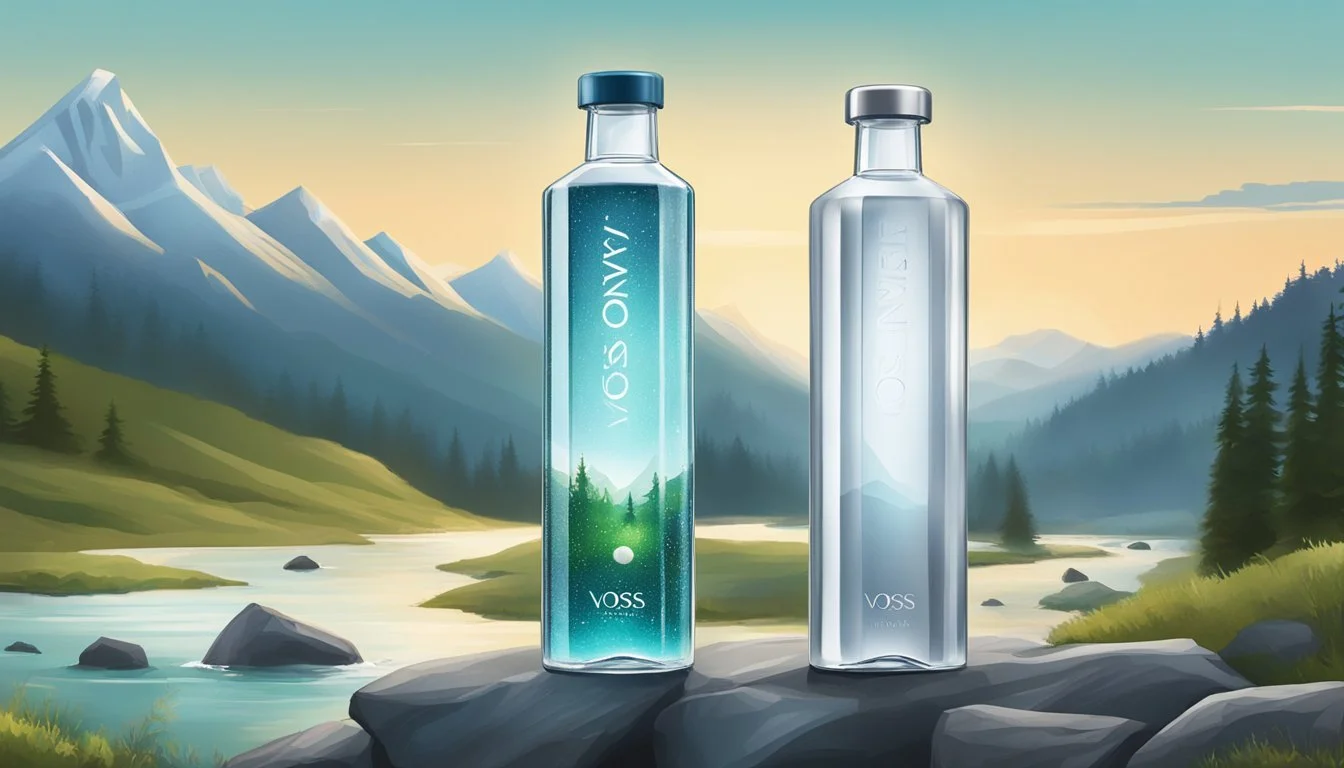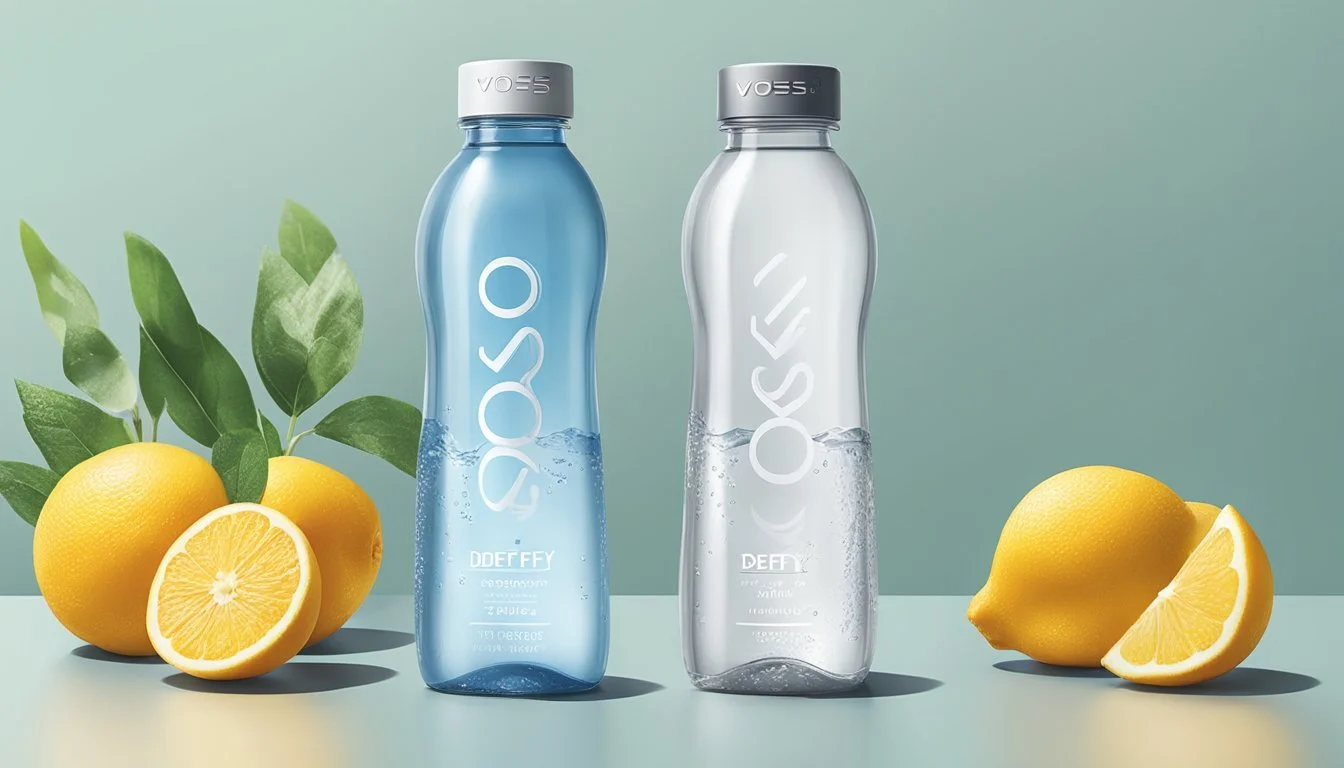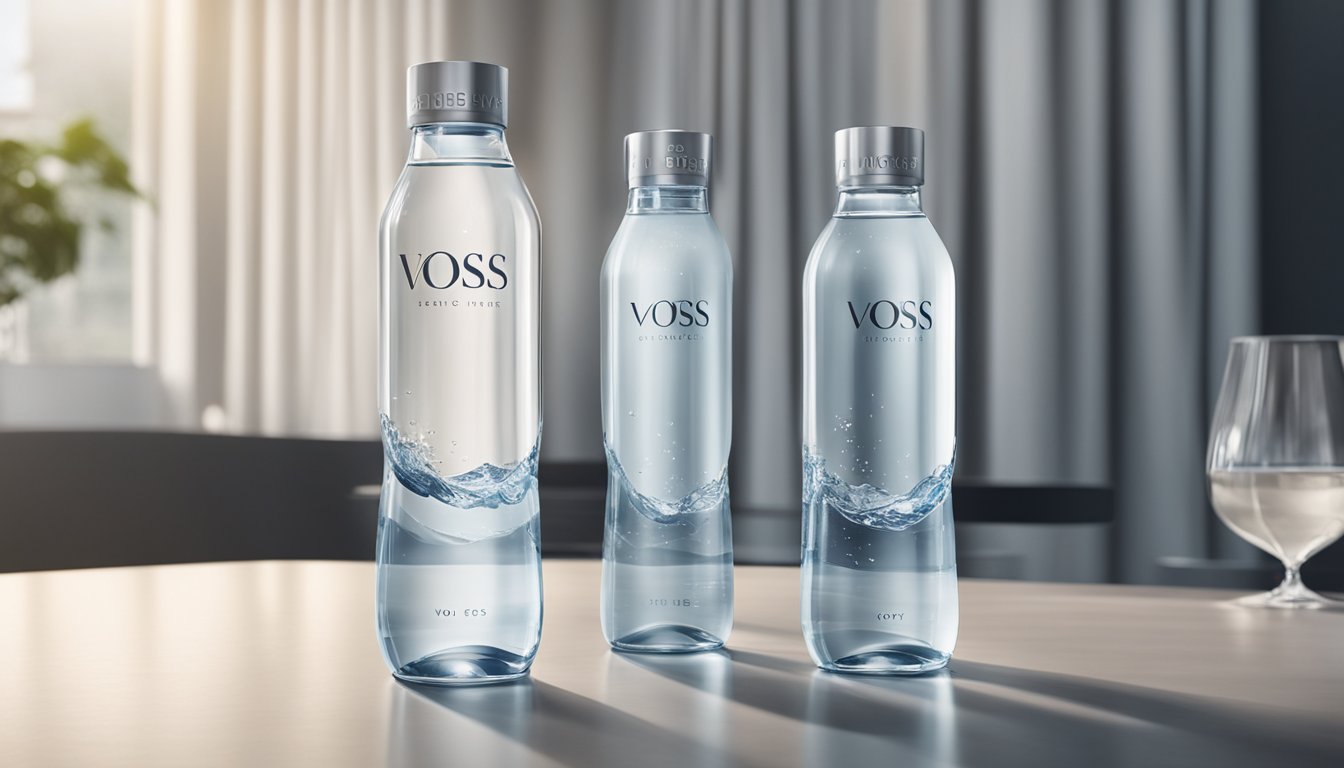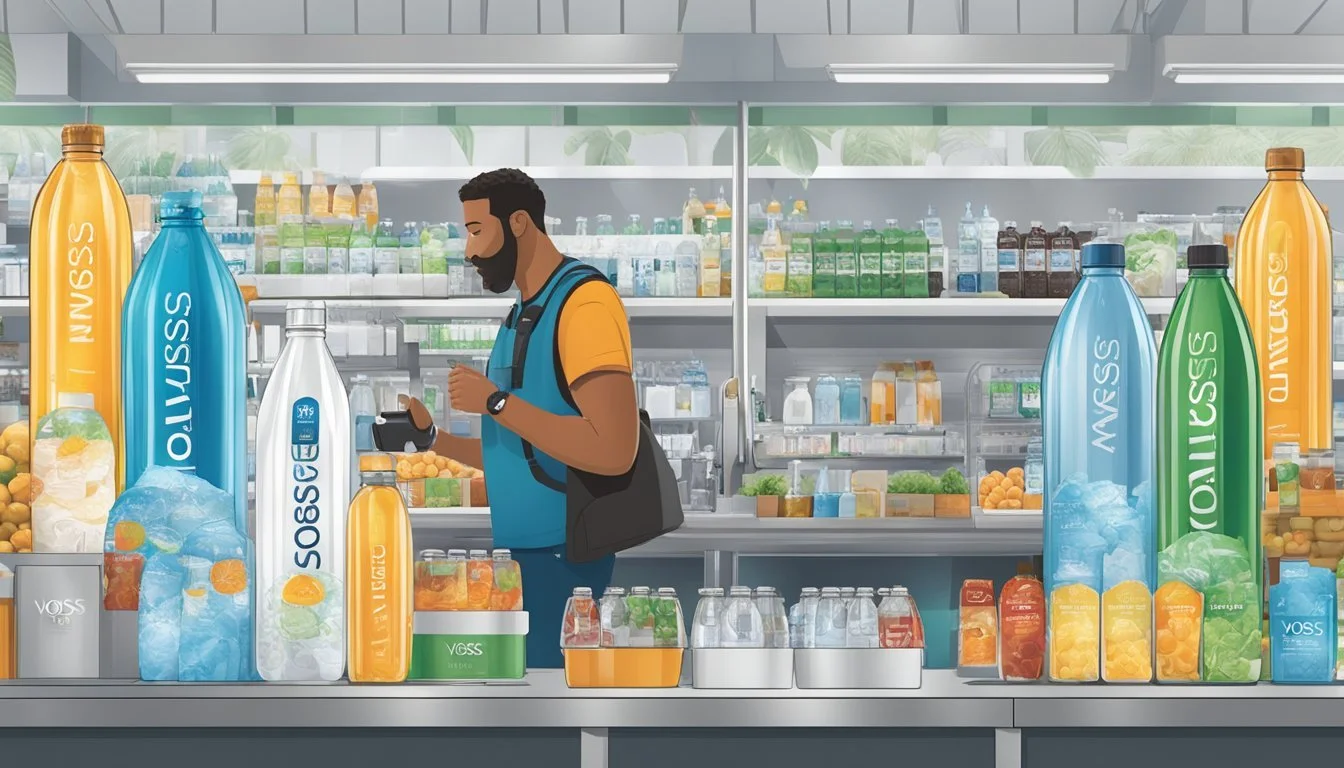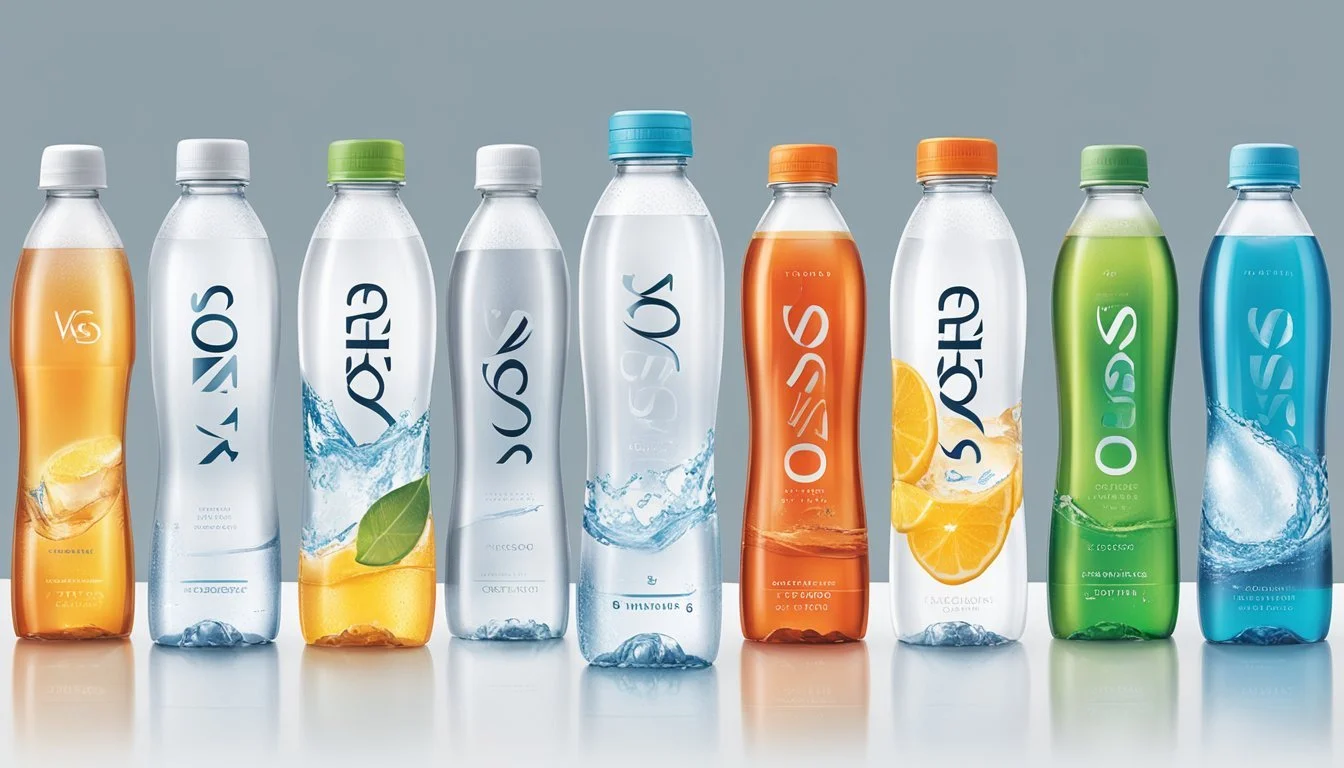Voss vs. Defy
Which Bottled Water is Better for You?
Choosing between Voss and Defy bottled water can be perplexing for consumers seeking the best quality hydration. Voss, sourced from natural springs in Southern Norway, offers a crisp and refreshing taste without any aftertaste. Its sleek bottle design has made it a symbol of luxury and purity in the bottled water market.
Defy, on the other hand, positions itself as a premium brand with added benefits aimed at enhancing hydration and health. Utilizing advanced filtration processes, it boasts a high pH level and claims to provide superior antioxidative properties, appealing to those looking for more than just hydration.
By comparing these two brands, readers can make an informed decision on which bottled water aligns better with their preferences and needs. Both Voss and Defy offer unique advantages, setting them apart in a crowded market.
The Rise of Bottled Water
Bottled water has seen a significant rise in demand in recent decades. This trend is driven by increasing consumer awareness of health and hydration benefits. People are looking for convenient ways to stay hydrated throughout their busy days.
In the past, tap water was the primary source of drinking water for many. Concerns about water quality and taste have shifted preferences towards bottled options. This shift is seen across various demographics, from fitness enthusiasts to office workers.
The convenience of bottled water plays a crucial role. Whether they are running errands, working out, or commuting, water drinkers appreciate the ease of grabbing a bottle on the go. This portability is a major factor in its popularity.
Marketing has also influenced the rise. Brands like Voss and Defy have capitalized on emerging trends toward purity and premium experiences. They have positioned their products as not just water but a lifestyle choice.
Additionally, the branding around bottled water appeals to a sense of luxury and exclusivity. Elegant packaging and promises of natural sources attract consumers. This appeal contributes to the steady growth in bottled water consumption.
Environmental concerns are now shaping new trends in the market. Recyclable and reusable packaging options are being introduced to address these issues. Some brands are even focusing on sustainability as a core part of their identity.
Despite the environmental debates, bottled water remains a staple for many. The blend of convenience, perceived health benefits, and marketing influence has cemented its place in the daily routines of millions.
Comparing Voss and Defy: An Overview
Voss and Defy are both popular choices among premium bottled waters, each with unique characteristics that appeal to different preferences.
Origin and Source
Voss water originates from an underground aquifer in Iveland, a remote area in Southern Norway. It is known for its pristine and unpolluted source. In contrast, Defy sources its water from multiple artesian aquifers around the world, choosing locations based on water quality and sustainability.
The origin of Voss emphasizes natural purity, while Defy focuses on diversity and sustainability, ensuring top-tier quality from various regions.
Filtration and Purification Process
Voss claims a minimal filtration process to preserve the natural minerals and original purity of its water. The water undergoes a micro-filtration process, where it is naturally filtered through layers of sand and rock.
Defy, on the other hand, utilizes an advanced multi-stage filtration process, including reverse osmosis, UV treatment, and ozonation. This thorough process ensures the water is free from contaminants and retains essential minerals, offering a balanced taste and optimal hydration.
Material and Packaging
Voss stands out with its sleek cylindrical glass bottles for its premium product line, which are not only aesthetically pleasing but also environmentally friendly due to recyclability. They also offer plastic water bottles for more casual use, making Voss versatile in its packaging options.
Defy opts for BPA-free plastic water bottles, prioritizing convenience and portability. These bottles are designed for active lifestyles and are fully recyclable, reflecting the brand's commitment to sustainability.
In summary, Voss and Defy cater to different niches; Voss offers premium glass packaging with a focus on natural purity, while Defy provides versatile and convenient plastic options with comprehensive filtration.
Nutritional Content
The nutritional content of bottled water can significantly impact hydration and overall health, with a focus on mineral and electrolyte composition.
Mineral Content
Voss and Defy offer distinct mineral profiles. Voss is marketed as pure, natural artesian water and is noted for having a low Total Dissolved Solids (TDS) level. This means it contains fewer minerals, which some consumers may prefer for its clean, crisp taste. Common minerals in Voss include calcium, magnesium, and potassium in minimal amounts.
Defy, on the other hand, offers a higher mineral content with added electrolytes designed to enhance hydration and support active lifestyles. It contains essential minerals such as calcium, potassium, and magnesium in higher concentrations. These minerals play a crucial role in bone health, muscle function, and cardiovascular health, making Defy a preferable choice for those seeking increased mineral intake.
Voss Mineral Content:
Calcium: Low
Magnesium: Low
Potassium: Low
Defy Mineral Content:
Magnesium: Higher
Potassium: Higher
Electrolytes and Health Benefits
Electrolytes are vital for maintaining fluid balance, muscle contractions, and nerve signals. Voss provides a basic profile of electrolytes due to its low mineral content. While it's sufficient for regular consumption, it might not fully meet the needs of those engaged in intense physical activities.
Defy stands out for its added electrolytes, designed to boost hydration efficiency and recovery. The higher levels of calcium, magnesium, and potassium in Defy promote better muscle function and energy metabolism. This makes Defy a strong candidate for athletes or individuals with high electrolyte requirements.
Electrolytes in Voss:
Calcium: Minimal
Magnesium: Minimal
Potassium: Minimal
Electrolytes in Defy:
Calcium: Enhanced
Magnesium: Enhanced
Potassium: Enhanced
In summary, Defy offers a more robust profile in terms of mineral and electrolyte content, potentially providing greater health benefits, especially for those with an active lifestyle.
Taste Profile
Voss and Defy bottled waters present distinct taste experiences. This section examines professional evaluations and consumer opinions to provide a comprehensive view of their taste profiles.
Taste Analysis by Water Sommelier
Professional water sommeliers have identified notable differences between Voss and Defy. Voss water, sourced from an aquifer in Norway, is often described as having a neutral and pure taste with subtle minerality. The glass bottles used for Voss maintain the water's clean and crisp flavor, free from any plastic aftertaste.
Defy water, known for its ionized and alkaline properties, has a slightly tangy taste due to its higher pH levels. It is often described as smooth and refreshing, ideal for post-workout hydration. This ionization process not only influences the taste but also enhances the hydration properties, appealing to a health-conscious market.
Consumer Perceptions
Consumers provide varied feedback on Voss and Defy. Voss receives high praise for its natural and smooth flavor, described as refreshing and crisp. Many consumers appreciate the packaging, which adds an element of luxury to the overall experience. The neutrality of its taste makes it a favorite among those who prefer water with minimal aftertaste.
Defy, on the other hand, has a distinct taste that some consumers find invigorating due to its alkaline nature. While some users appreciate this unique flavor, others might find it less appealing compared to traditional bottled waters. Despite this divide, the health benefits associated with Defy’s alkaline properties attract a dedicated following, particularly among athletes and fitness enthusiasts.
Environmental Impact
The environmental impact of bottled water is an important consideration for consumers, particularly regarding sustainability and packaging materials. Comparing Voss and Defy reveals different approaches to minimizing their ecological footprint.
Bottled Water Brands and Sustainability
Voss sources its water from Norway and packages it in glass bottles. Glass is free from chemicals such as BPA and is fully recyclable, though it is heavier, which can increase transportation emissions.
Defy, on the other hand, focuses on reducing plastic waste. It uses biodegradable and compostable materials for its packaging, making it a more sustainable choice. However, the production process for these materials can still have a significant environmental impact.
Both brands strive to minimize their environmental footprint, but their methods and results can vary. This comparison highlights the need for consumers to consider both packaging materials and the overall sustainability practices of bottled water brands.
Market Trends and Consumer Preferences
In recent years, bottled water has seen significant shifts in both the market landscape and consumer preferences, with an emphasis on health, quality, and lifestyle choices. Leading brands have had to adapt to these evolving demands to stay competitive.
Emerging Water Brands
The bottled water market has witnessed the rise of several new contenders alongside established names like Evian, Arrowhead, and Smartwater. Fiji Water and Voss have become particularly prominent in the premium segment, known for their taste and purity. Consumers are increasingly looking for water that offers unique mineral compositions, sustainability practices, and health benefits.
Essentia and Defy are newer brands that emphasize functional benefits such as high pH levels and electrolyte content. They cater to a health-conscious demographic. Some brands focus on eco-friendly packaging to appeal to environmentally aware consumers.
Luxury vs. Accessibility
Luxury bottled waters like Voss and Evian are marketed as lifestyle products, often associated with high-end dining and fashion. They come in stylish packaging and highlight their pristine sources. For instance, Voss is bottled in Norway and is known for its distinctive cylindrical glass bottle.
Conversely, brands like Arrowhead and Smartwater aim to balance quality and affordability. These brands are accessible in various retail outlets, offering good taste and hydration without the luxury price tag. Fiji Water, while premium, also tries to maintain a broader market presence by being available in a range of sizes and prices.
Consumers choose based on various factors such as taste, brand loyalty, packaging, and price points, creating a diverse and competitive market space.
Safety and Quality Standards
This section addresses the safety measures and quality standards upheld by Voss and Defy, focusing on water purity, contaminants, certifications, and regulatory compliance.
Purity and Contaminants
Voss boasts exceptionally low Total Dissolved Solids (TDS) levels, ensuring minimal mineral presence, which contributes to its clean taste. Sourced from a natural spring in Southern Norway, Voss water is known for its refreshing quality and purity.
Defy utilizes advanced filtration techniques, including reverse osmosis and microfiltration, to remove impurities and maintain high water quality. The filtration process targets pollutants and chemicals, ensuring the water remains free of contaminants.
Both brands emphasize the absence of harmful substances to deliver safe drinking water. Laboratory tests are regularly conducted to monitor purity levels, ensuring compliance with safety standards. These measures demonstrate a commitment to providing consumers with high-quality, contaminant-free bottled water.
Certifications and Regulations
Voss and Defy adhere to stringent international and local standards for bottled water. Voss complies with U.S. Federal, State, Norwegian, and International regulations, reflecting a robust commitment to water safety and quality.
Defy's offerings meet various health and safety certifications, maintaining strict oversight throughout the production process. The company holds certifications from ISO and NSF International for water quality and safety, confirming their adherence to global standards.
Both brands employ independent certified laboratories to perform thorough testing. These measures ensure that each bottle of water meets the necessary regulatory requirements, reinforcing the brands' dedication to safety and quality control. Such certifications provide consumers with confidence in the product’s reliability and safety.
Comparison Conclusion
When comparing Voss and Defy, several key factors come into play: water source, hydration efficiency, mineral content, and packaging.
Water Source:
Voss: Natural spring water sourced from Southern Norway.
Defy: Information on Defy’s water source is less prominently disclosed, but both brands emphasize purity.
Hydration Efficiency:
Both Voss and Defy are marketed as superior choices for hydration.
Claims about hydration may depend on personal preference and perceived benefits.
Mineral Content:
Voss: Known for low TDS (Total Dissolved Solids), indicating fewer minerals.
Defy: Provides essential minerals such as magnesium and calcium, beneficial for health.
Taste and Packaging:
Voss: Available in both glass and plastic; praised for its clean taste.
Defy: Known for eco-friendly packaging and enhanced mineral content.
Price and Availability:
Voss: Often found in premium markets; pricing can be higher.
Defy: Offers competitive pricing with a focus on added value through enhanced minerals.
More About Voss
Voss vs Zephyrhills: Which Bottled Water is Better?
More About Defy

